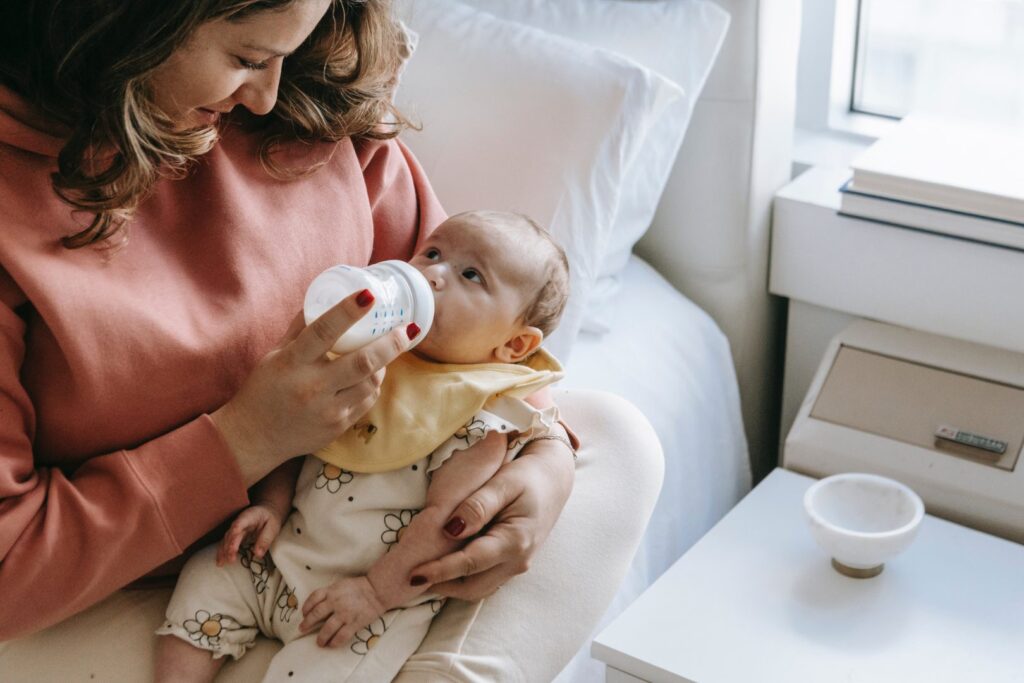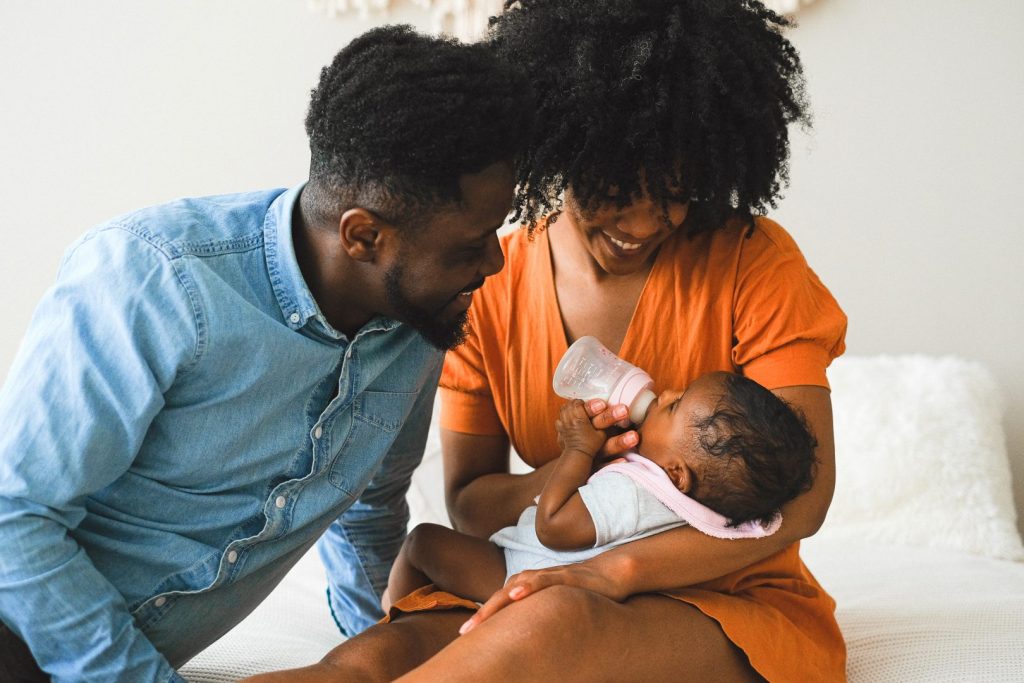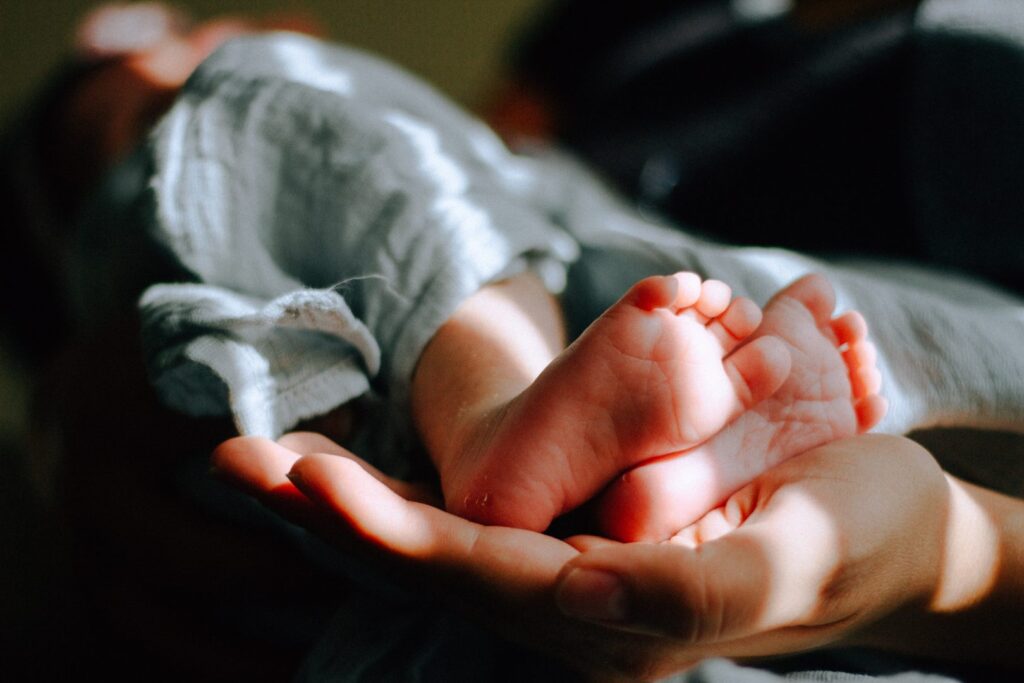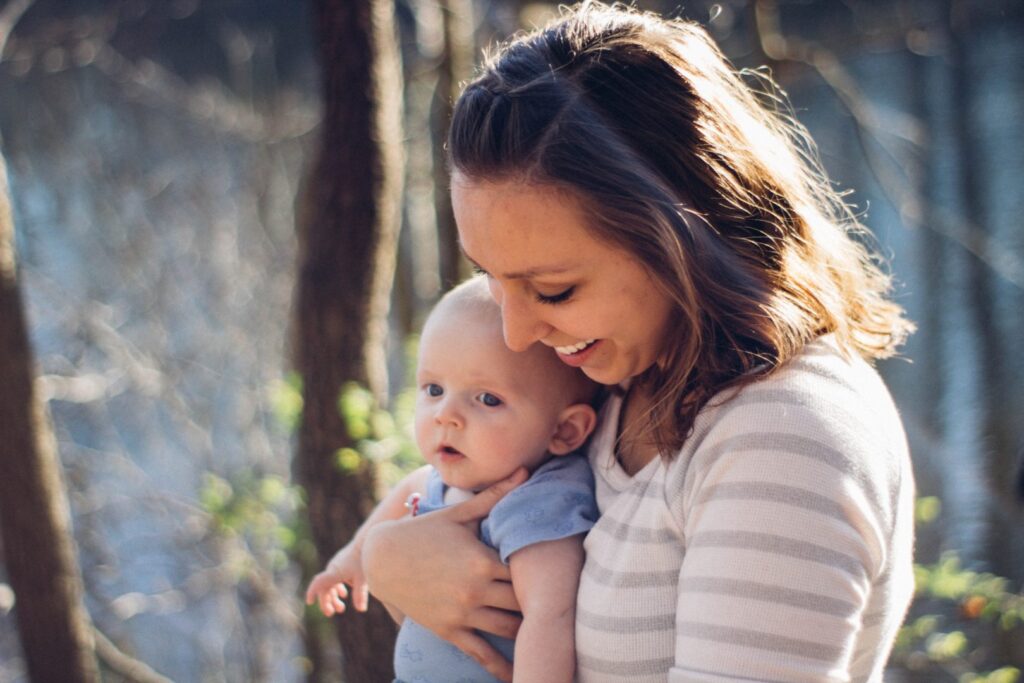Newborn hiccups can truly be a pain in the… heads of countless parents. Yes, constant hiccuping can get quite annoying.
The excitement of having a baby is priceless! Holding your little one in your arms, feeling its soft skin, and looking into those cute eyes are moments you won’t forget.
Babies feel hunger, just like any other human. So, several times a day, you pick up the baby bottle, or breastfeed your little one.
But a common habit for almost every baby is to develop hiccups after feeding. Most parents can agree that babies’ hiccups are a common thing.
But, is it OK for my baby to have constant and intense hiccups? In this article, we’ll discuss newborn hiccups and what to do about them.
Why Do Newborns Get Hiccups After Feeding?
A common human practice is to ask why some things happen. So, it’s OK for parents to wonder why do newborn hiccups occur after feeding.

In the following paragraphs, we’ll unravel the physiology of newborn hiccups after feeding and answer all your questions.
· Immature Digestive System and Nervous System
Hiccups are reflexes (like other reflexes such as sneezing or coughing), which commonly happen after eating or drinking.
Newborns usually have immature digestive and nervous systems. They both develop after the baby is born.
That’s the reason why babies can only drink milk. So, it’s tougher for them to respond to food without developing hiccups.
Also, since a baby’s nervous system is less developed, they have less control over their reflexes. That’s why newborn hiccups are more common than adult hiccups.
All things considered, a baby’s body isn’t mature enough to handle everything, so reflex responses such as hiccups are normal.
· Swallowing Air During Feeding
Another possible reason for newborn hiccups is swallowing air during feeding (with a bottle or breastfeeding).
So, make sure that you don’t leave space for your baby to swallow air while feeding it. Hiccups aren’t dangerous, but they sure are annoying.

Teaching your babies how to burp can also help replace hiccups as a way to get rid of swallowed air. But how can you teach a baby to burp?
Firstly, hold your little one in an upright position. Support its neck and head, and give it gentle taps on the back. And voila! Now you have a burping baby!
· Positioning During Feeding and Digestion
The positioning during feeding and digestion can also be a trigger factor for newborn hiccups.
For example, the chance of your baby developing hiccups is greater if it’s lying down during feeding or digestion.
Some breastfeeding positions can also trigger hiccup development in your newborn. So, keep in mind the position of your baby.
How to Get Rid of Hiccups in Babies After Feeding
We discussed the reasons for hiccups in babies. Now it’s time to see how to get rid of newborn hiccups after feeding.
· Burping Techniques
As we mentioned earlier, hiccups can occur as a result of your baby swallowing air. So, burping can easily replace hiccups.

Air in your baby’s stomach can cause pain and discomfort, so burping is essential if you want to have a happy baby.
One burping technique is holding your child in an upright position while letting its head rest on your shoulder. Gently pat your baby’s back and wait for your little one to burp.
Another UNICEF-approved method is sitting your baby on your lap (or laying it face down) and gently patting its back.
· Pacifier Use
Another method to prevent hiccups is using a soothing pacifier. That will replace the hiccup reflex with the sucking reflex.
But don’t forget to ensure that the pacifier is clean at all times. Dirty pacifiers can transmit many diseases, such as viruses or bacteria.
Also, keep in mind that constant and long-term use of pacifiers can harm children’s dental hygiene and tooth development.
· Upright Holding
Another way to prevent your baby from developing annoying hiccups is by holding it upright after feeding.
You can also support your baby in this position by holding it close and gently patting its back. That might help your baby develop a so-called burp reflex that will replace hiccups.
The upright holding position also lets gravity ease the hiccups. So, gravity is indeed our friend!

Keep in mind that you should be gentle with your baby and constantly show calmness and parental warmth.
· Calm Environment
Did you know that creating a calm environment can help your baby overcome hiccups? Well, it’s true! Babies are really sensitive to their surroundings, so a comfortable atmosphere will make them feel better.
Firstly, make sure to turn down any noise. That includes your phone, TV, or any other device as well.
After that, make sure that the room temperature is comfortable for your little one. Studies by medical experts have shown that the perfect room temperature for babies is 20°C-22°C (68°F-72°F).
You should also reduce overstimulation after feeding and let your baby relax in a cozy bed or crib. That way, you’ll have a healthy, calm, and happy baby.
Frequently Asked Questions (FAQs)
Are hiccups after feeding normal for newborns?
Yes, hiccups are absolutely normal for newborns.
How can I prevent my baby from getting hiccups?
You can try feeding the baby before it’s hungry, use a pacifier, or sit it in an upright position after feeding.
Can hiccups indicate a more serious health issue?
Constant hiccups that make your baby uncomfortable can be a sign of a more serious health issue.
Do hiccups affect my baby’s sleep?
Hiccups most often don’t affect a baby’s sleep. But they can prevent your baby from falling asleep peacefully.
ALSO READ: How to Put a Baby to Sleep in 40 Seconds?







